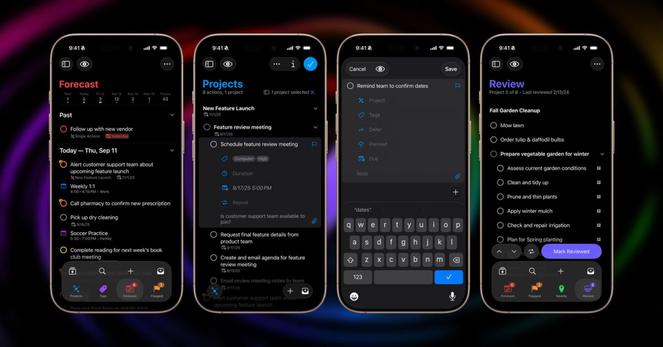2025-09-30 11:14:51
Aligned Hierarchical Black Hole Mergers in AGN disks revealed by GWTC-4
Yin-Jie Li, Yuan-Zhu Wang, Shao-Peng Tang, Yi-Zhong Fan
https://arxiv.org/abs/2509.23897 https://
2025-09-20 17:00:29
I've probably mentioned that I'm working on switching #Gentoo from our half-broken eselect-ldso logic to #FlexiBLAS. This also involves a transition period where both setups would be supported.
A good thing is that the switch is ABI-compatible with the previous state (or at least it's supposed to be — we're working with upstream on fixing function coverage). Since libblas.so, liblapack.so and the rest are replaced by symlinks, programs that link to them will simply start using FlexiBLAS. So far, so good.
Unfortunately, switching the other way doesn't work as well. Stuff newly built against our libblas.so & co. symlinks naturally reads FlexiBLAS's SONAME from them, and links to libflexiblas directly. So should you decide to switch back, some packages will stay linked to FlexiBLAS and will need to rebuilt.
In order to avoid this, I would have to replace the symlinks with wrapper libraries, having libblas.so.3 and so on SONAMEs, and linking to libflexiblas. Unfortunately, a dummy wrapper isn't going to work — the linker will complain about using indirect symbols from libflexiblas.so. So I would probably have to "reexport" their symbols somehow, and ideally split into appropriate libraries, so that `-Wl,--as-needed` wouldn't drop some of them. But how to do that?
Well, let's look at the existing logic for eselect-ldso — clearly both BLIS and OpenBLAS create some wrappers. So I've spent some time investigating upstream Makefiles, and literally couldn't find the respective targets. I mean, these are quite complex Makefiles, but I'm grepping hard and can't find even a partial match.
As it turns out, these Makefile targets are added by Gentoo-specific patches. And these patches are just horrible. In case of OpenBLAS, they create the wrapper libraries by linking all the relevant .o files from OpenBLAS build, plus the shared OpenBLAS library. So the OpenBLAS symbols relevant to each interface end up duplicated in libblas.so, liblapack.so, etc., and apparently the symbols needed by them are taken from libopenblas.so. The individual interface libraries aren't even linked to one another, so they expose their own duplicate symbols, but use the implementation from OpenBLAS instead.
BLIS is even worse — the patch is simply creating libblas.so and libcblas.so, using all BLIS objects directly, plus symbol visibility to hide symbols irrelevant to the library. So yes, libblis.so, libblas.so and libcblas.so are roughly three separate copies of the same library, differing only in symbol visibility. And of course libcblas.so doesn't use libblas.so.
Truly #GSoC quality.
2025-09-15 16:04:29
"Omni’s take at integrating Apple’s foundation models is the most elegant, complete, and streamlined I’ve seen in a while. Their integration into Apple’s Foundation Models framework is as comprehensive and flexible as you’d expect from them, and I can’t recommend this update enough." — Marcus Mendes
https://
2025-10-17 07:43:31
As Microsoft EOLs Windows 10, I'm reminded of why Windows is fundamentally broken, by design. https://davelane.nz/windows-broken-design When you're a global platform monopoly, your existing users are your biggest competition. Your interests and those of your customers are diametricall…
2025-09-23 09:22:00
Video-to-BT: Generating Reactive Behavior Trees from Human Demonstration Videos for Robotic Assembly
Xiwei Zhao, Yiwei Wang, Yansong Wu, Fan Wu, Teng Sun, Zhonghua Miao, Sami Haddadin, Alois Knoll
https://arxiv.org/abs/2509.16611
2025-08-21 08:46:10
Multistage Robust Optimization for Time-Decoupled Power Flexibility Aggregation with Energy Storage
Rui Xie, Yue Chen
https://arxiv.org/abs/2508.14477 https://
2025-09-23 11:43:40
SSNet: Flexible and robust channel extrapolation for fluid antenna systems enabled by an self-supervised learning framework
Yuan Gao, Yiming Liu, Runze Yu, Shengli Liu, Yanliang Jin, Shunqing Zhang, Shugong Xu, Xiaoli Chu
https://arxiv.org/abs/2509.17797
2025-08-20 09:42:50
Real-Time, Population-Based Reconstruction of 3D Bone Models via Very-Low-Dose Protocols
Yiqun Lin, Haoran Sun, Yongqing Li, Rabia Aslam, Lung Fung Tse, Tiange Cheng, Chun Sing Chui, Wing Fung Yau, Victorine R. Le Meur, Meruyert Amangeldy, Kiho Cho, Yinyu Ye, James Zou, Wei Zhao, Xiaomeng Li
https://arxiv.org/abs/2508.13947
2025-09-23 09:22:30
Unity based virtual reality for detector and event visualization in JUNO experiment
Kai-Xuan Huang, Tian-Zi Song, Yu-Ning Su, Cheng-Xin Wu, Xue-Sen Wang, Yu-Mei Zhang, Zheng-Yun You
https://arxiv.org/abs/2509.16285
2025-09-15 07:46:01
Automated Tuning for Diffusion Inverse Problem Solvers without Generative Prior Retraining
Ya\c{s}ar Utku Al\c{c}alar, Junno Yun, Mehmet Ak\c{c}akaya
https://arxiv.org/abs/2509.09880







